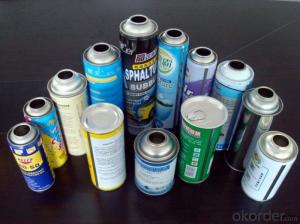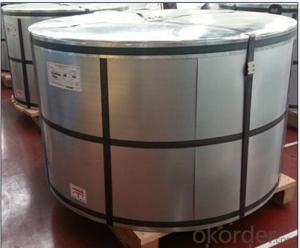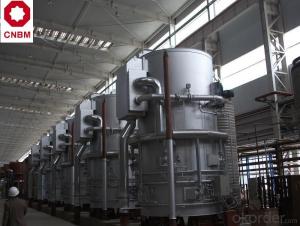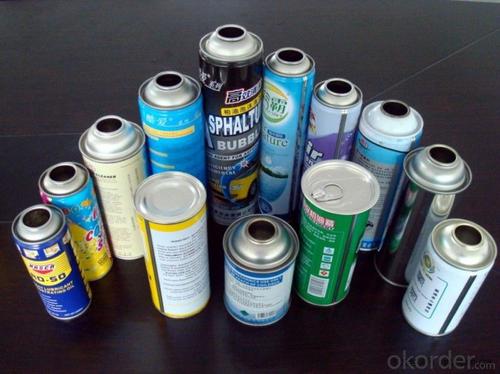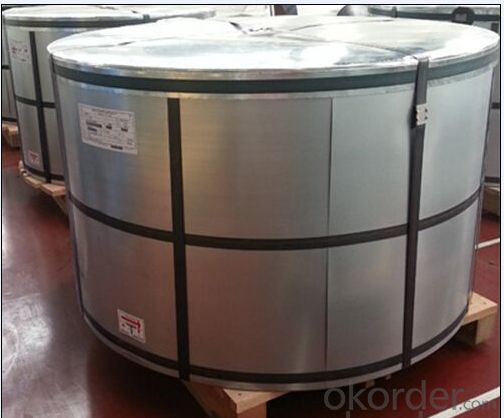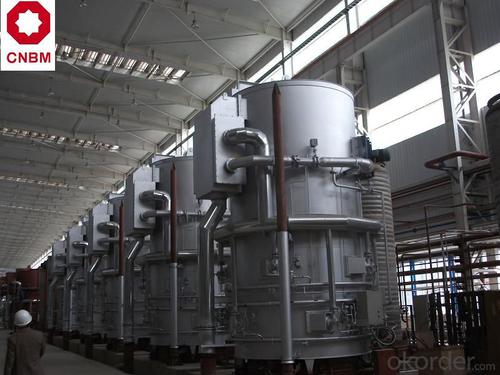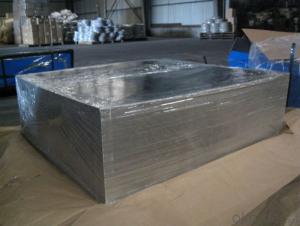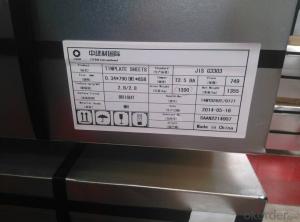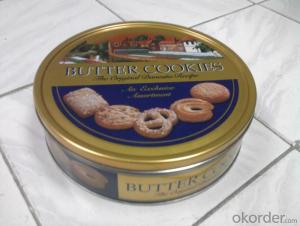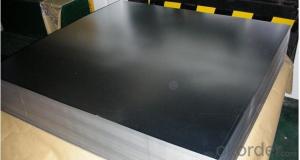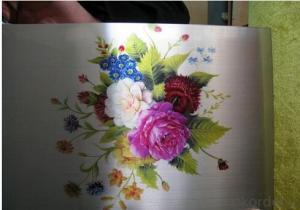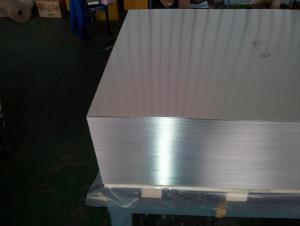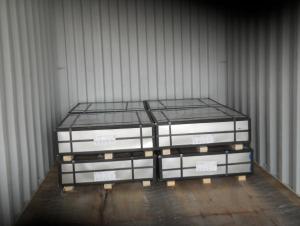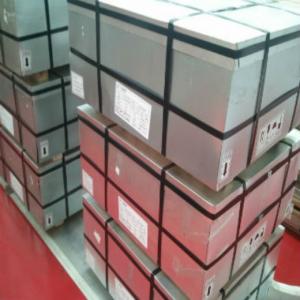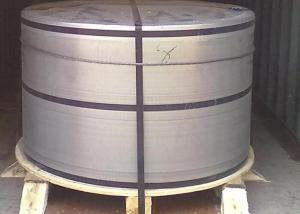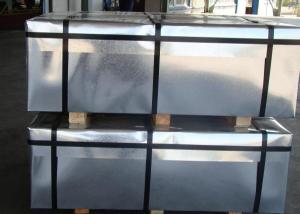Prime GradeTinplate For Aerosol Cans, MR,
- Loading Port:
- Tianjin
- Payment Terms:
- TT OR LC
- Min Order Qty:
- 50 m.t.
- Supply Capability:
- 40000 m.t./month
OKorder Service Pledge
OKorder Financial Service
You Might Also Like
1.Brief Introduction
Tinplate is widely used for making all types of containers, containing industrial usage such as paint can, oil can, aerosol cans etc., and food cans like milk powder cans, tomato paste can, dry food cans etc.
2. Quality
As a state owned company and a large tinplate supplier in China, our tinplate quality ranks 1st level in China, similar to Bao Steel, Posco etc.
3. Specification
standard: GB/T2520, JIS G3303, DIN EN10202
Material: MR /SPCC
Thickness available: 0.16-0.50MM
Width available: 600~1050MM
Temper grade: T1 – DR8
Tin coating: ordinary 2.8g/2.8g, 5.6g/5.6g and others
Package: sea worthy export package.
Applications: Tin can for chemicals & paint cans, industrial cans, food cans
4. Our production steps
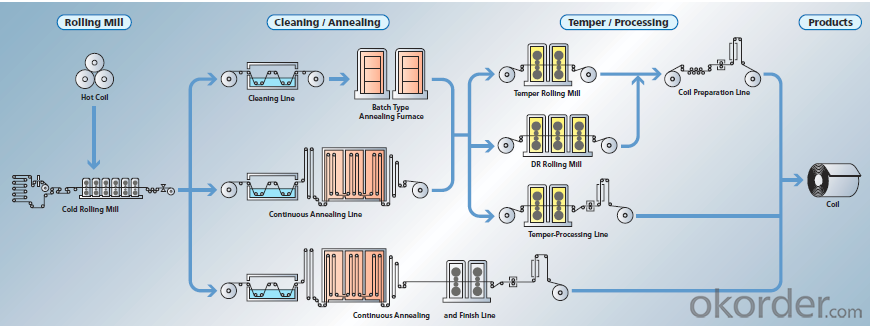
5. Usage Scope
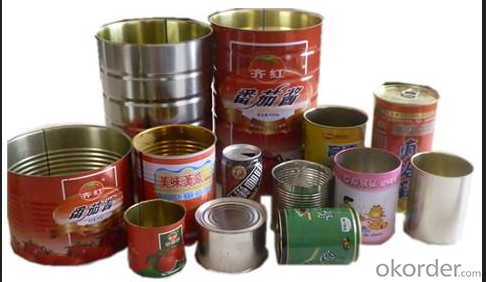
6. Our euxport market
our tinplate has been popularly exported to more than 30 countries, including Asia, Europe countries, Gulf area, Sounth America, Northe & South Afric etc.
- Q: How does tinplate contribute to the freshness of pet food?
- Tinplate, commonly used for pet food packaging, helps contribute to the freshness of pet food by providing a protective barrier against oxygen, light, and moisture. This prevents oxidation and spoilage of the food, preserving its quality and flavor for a longer period. Additionally, tinplate cans are hermetically sealed, preventing any external contaminants from entering the packaging, further enhancing the freshness and safety of the pet food.
- Q: What are the different ways to open tinplate cans?
- There are several different ways to open tinplate cans. The most common method is to use a can opener, which is a handheld device specifically designed for this purpose. Another option is to use a knife or a pair of scissors to carefully pierce and cut open the lid. In some cases, cans may have pull tabs or easy-open lids that can be peeled back without the need for any tools. Additionally, there are electric can openers available that automate the process for convenience.
- Q: What are the environmental impacts of tinplate production?
- The environmental impacts of tinplate production include the extraction and processing of raw materials, such as iron and tin ores, which can lead to deforestation, habitat destruction, and soil erosion. The manufacturing process involves energy-intensive operations, emitting greenhouse gases and contributing to climate change. Additionally, the production of tinplate requires the use of chemicals, such as sulfuric acid and tin chloride, which can contaminate water sources and harm ecosystems. The disposal of waste and by-products, including sludge and wastewater, also poses a risk to the environment if not properly managed.
- Q: What are the main countries producing tinplate?
- The main countries producing tinplate are China, Japan, and the United States.
- Q: How does tinplate compare to tin-free steel in terms of properties and applications?
- Tinplate and tin-free steel have distinct properties and applications. Tinplate is steel coated with a thin layer of tin, making it corrosion-resistant, ductile, and ideal for applications requiring high aesthetic appeal, such as food and beverage packaging. On the other hand, tin-free steel lacks the tin coating but compensates with a polymer or metallic coating, offering enhanced strength and weldability. Tin-free steel finds application in various industries, including automotive, construction, and industrial packaging, where durability and cost-efficiency are prioritized over aesthetic requirements.
- Q: What are the quality control measures for tinplate production?
- Quality control measures for tinplate production typically involve several steps to ensure the production of high-quality tinplate. These measures may include thorough inspection of raw materials, such as tin-coated steel coils, to ensure they meet the required specifications. During the manufacturing process, regular testing and monitoring of various parameters like coating thickness, adhesion, surface finish, and tinplate dimensions are conducted. Additionally, visual inspections are performed to identify any defects or imperfections. Furthermore, samples are taken at different stages of production for laboratory testing, which may include corrosion resistance, mechanical properties, and chemical composition analysis. These measures help maintain consistent quality and ensure that the tinplate meets the necessary standards for its intended applications.
- Q: What are the main challenges in tinplate coating thickness control?
- One of the main challenges in tinplate coating thickness control is achieving uniformity across the entire surface of the tinplate. The coating thickness must be consistent and within the desired range to ensure proper protection and functionality of the tinplate. Additionally, controlling the coating thickness requires precise measurement and monitoring techniques as well as the ability to adjust the coating process parameters in real-time to account for any variations or deviations. Another challenge is ensuring the adhesion of the coating to the tinplate surface, as poor adhesion can lead to coating defects and reduced performance. Lastly, controlling the coating thickness while maintaining cost-effectiveness can be a challenge, as it requires optimizing the coating process to minimize material waste and reduce production costs.
- Q: How does tinplate perform in terms of puncture resistance?
- Tinplate performs exceptionally well in terms of puncture resistance. Its inherent strength and durability make it highly resistant to punctures, ensuring the protection and integrity of the contents it holds.
- Q: What are the different testing methods for tinplate packaging?
- Some of the different testing methods for tinplate packaging include visual inspection, leak testing, drop testing, compression testing, and corrosion resistance testing.
- Q: How does tinplate compare to plastic in terms of sustainability?
- Tinplate generally has a higher sustainability profile compared to plastic due to several reasons. Firstly, tinplate is a highly recyclable material, with a recycling rate of around 90%, while plastic recycling rates vary and are generally lower. This means that tinplate is more likely to be reused and diverted from landfills, reducing its environmental impact. Additionally, tinplate production requires significantly less energy and emits fewer greenhouse gases compared to plastic manufacturing. Moreover, tinplate is more durable and has a longer lifespan, making it suitable for multiple uses, whereas plastic is often single-use and contributes to the growing waste problem. Overall, tinplate offers better sustainability prospects in terms of recycling, energy consumption, and durability compared to plastic.
Send your message to us
Prime GradeTinplate For Aerosol Cans, MR,
- Loading Port:
- Tianjin
- Payment Terms:
- TT OR LC
- Min Order Qty:
- 50 m.t.
- Supply Capability:
- 40000 m.t./month
OKorder Service Pledge
OKorder Financial Service
Similar products
Hot products
Hot Searches
Related keywords
